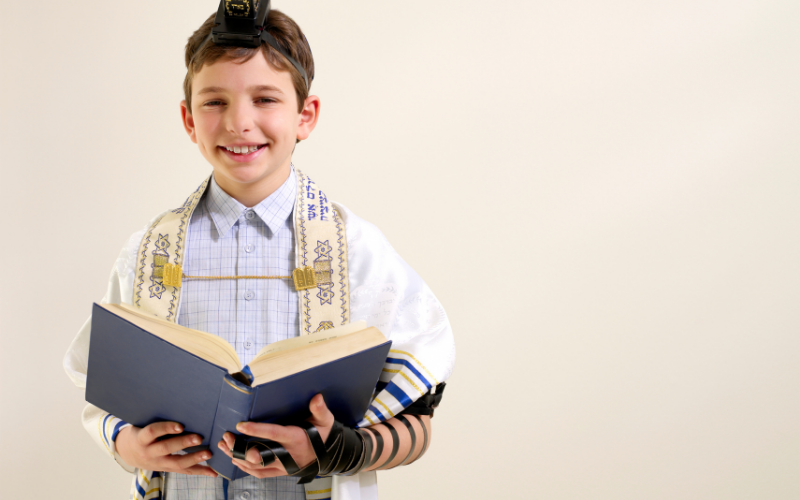Every parent thinks they understand their child until something unexpected happens. Understanding your child means understanding their inner psychological processes, their relationships, desires, emotions, thoughts, wishes, desires, interests, worries, joys, sorrows…, what your child says, and what they don’t say.
To do this, there is no other way than for parents to create a close relationship with their children so that they can easily share their thoughts and feelings. Below are the secrets that Israeli parents use to understand their children.
1. Praise your child whenever possible.
Jewish mothers always praise their children, right from the time they are born and do not understand their parents' language. Every action of the child, such as speaking or drawing, will receive praise from the parents.
In particular, Jewish children are often praised in public so that they can feel their presence and position in society.
If the child's performance is more impressive, he or she will receive applause and congratulations from all family members. Jews believe that being encouraged will increase self-esteem, promote spirit and openness of the child.

Jewish mothers always praise their children, even when they are born and do not yet understand their parents' language. Illustration photo
2. Listen to your child's opinions on many aspects
Parents who collect information about their children from many aspects can avoid subjective and one-sided views of their children, thereby helping them realize problems they often overlook or ignore.
For children, teachers are the people they trust the most, and friends are the closest people. Therefore, collecting information from teachers and friends of children is the best choice for parents.
3. Encourage your child to ask questions
While many Vietnamese parents feel annoyed with their children’s 1000 why questions, Jewish parents encourage their children to ask questions. Because an intelligent person is someone who knows how to doubt and ask questions.
That is why Jewish parents always encourage their children to dare to ask questions and to wonder. When they know how to ask questions, children will ask more questions and when they seek answers to their questions, they will learn useful things.
Jewish parents believe that asking questions means that the child is already thinking about things. Therefore, if the child can discover the answer himself, he will be interested in learning and gaining knowledge.
Therefore, parents not only encourage their children to ask questions but also need to patiently listen and help them find the answers.
4. Choose the appropriate connection channel
Each child has a different personality, to do this parents need to choose the right way to talk to the child based on their personality traits.
There are two ways to do this. One is to be direct: Parents tell their children their stance on the issue at hand. The advantage of this method is that it gets straight to the point, but it is only suitable for children with an extroverted personality.
Indirect method: Parents use a short story or an example to stimulate the child's interest in talking and then lead the conversation to the topic to be discussed.
5. Accept your child's messiness
Jewish parents don't mind when their children make a mess, they understand that children can't keep things as tidy as adults.
That is why instead of nagging their children, Jewish parents allow them to be comfortable and gradually explain to them why neatness is necessary.
6. Find the right conversation opportunity
There are always some problems and incidents arising from the children themselves and the surrounding environment. If parents promptly grasp typical problems and incidents and discuss and talk with their children, it will be more effective than usual, and the children themselves will also be more receptive.
7. No commands, just suggestions
Jewish parents never give orders to their children because this is very authoritarian and disrespectful to children. Instead, they will give suggestions for their children to decide according to their wishes.
Jewish parents also never constantly supervise their children, appearing everywhere at all times, but let their children be free within a safe framework.
However, this way of education has two sides. Because children's decisions are sometimes inappropriate, leading to failure, making children feel discouraged and no longer motivated.
At this time, parents are open to mistakes and help their children move on. For example, if a child decides to solve a problem in their own way and gets a low score at school, they never criticize but always encourage and help the child find another solution.

Jewish parents never give orders to their children because this is very authoritarian and disrespectful to children. Illustrative photo
8. Create a friendly, pleasant atmosphere
Many normal parents rarely talk or communicate with their children, but when problems arise, they severely discipline their children, thus creating a growing gap between parents and children.
Therefore, to have more effective conversations with children, parents need to create an intimate, close atmosphere, joke, tell interesting stories to shorten the emotional distance between the two sides.
9. Learning how to be a parent
Jews must learn how to be parents before they have children. Historically, Jewish sages developed a system of education specifically for parents and families that every Jew must learn.
After marriage, a son or daughter is taught that they no longer live for themselves but must take on the responsibility of being a father or mother and live for their relatives and family.
Learning how to be a parent is very important in Jewish culture. They believe that if an individual sees parenting as a burden or a difficult task, they will never be successful in raising children.
Source: https://giadinh.suckhoedoisong.vn/cach-giup-nguoi-do-thai-hieu-va-giao-tiep-voi-con-khien-cac-bac-cha-me-tren-toan-the-gioi-phai-hoc-hoi-172241011160539788.htm



![[Photo] Many streets in Hanoi were flooded due to the effects of storm Bualoi](https://vphoto.vietnam.vn/thumb/1200x675/vietnam/resource/IMAGE/2025/9/29/18b658aa0fa2495c927ade4bbe0096df)
![[Photo] General Secretary To Lam attends the ceremony to celebrate the 80th anniversary of the post and telecommunications sector and the 66th anniversary of the science and technology sector.](https://vphoto.vietnam.vn/thumb/1200x675/vietnam/resource/IMAGE/2025/9/29/8e86b39b8fe44121a2b14a031f4cef46)
![[Photo] National Assembly Chairman Tran Thanh Man chairs the 8th Conference of full-time National Assembly deputies](https://vphoto.vietnam.vn/thumb/1200x675/vietnam/resource/IMAGE/2025/9/29/2c21459bc38d44ffaacd679ab9a0477c)
![[Photo] General Secretary To Lam receives US Ambassador to Vietnam Marc Knapper](https://vphoto.vietnam.vn/thumb/1200x675/vietnam/resource/IMAGE/2025/9/29/c8fd0761aa184da7814aee57d87c49b3)






























































































Comment (0)